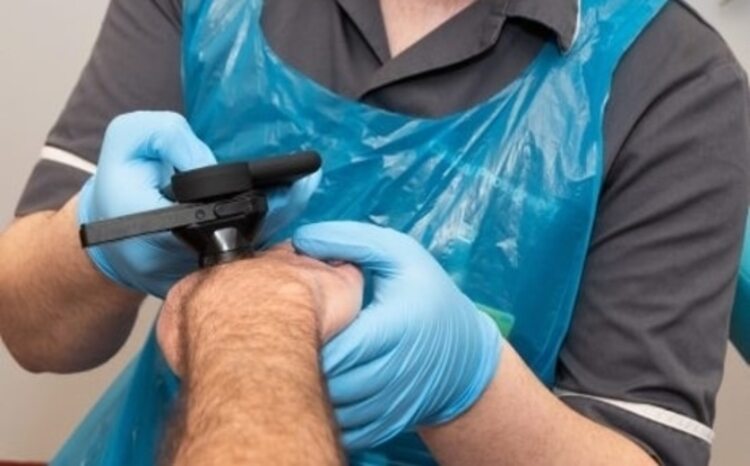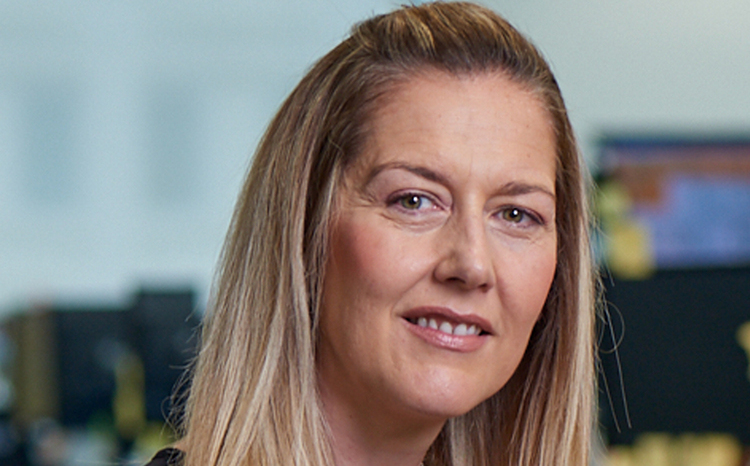AI could speed skin cancer diagnosis, finds NHSE report
- 29 August 2024

- The use of autonomous AI could speed up diagnosis and reduce wait times for skin cancer pathways, according to a report commissioned by NHS England
- The report evaluates the adoption of AI as a medical device (AIaMD) in suspected skin cancer pathways and assesses its safety and effectiveness
- Researchers examined real-world data from over 33,000 lesions assessed by DERM, an AIaMD developed by Skin Analytics
The use of autonomous AI could improve effectiveness and reducing wait times for skin cancer pathways, according to a report commissioned by NHS England.
AI as a medical device (AIaMD) is employed under human supervision in skin cancer pathways and can be used autonomously in the NHS if certified under classes UKCA IIa and CE III.
The report, ‘Evaluating pathways for AI dermatology in skin cancer detection’, published by consultancy Edge Health on 31 July 2024, evaluates the adoption of AIaMD in suspected skin cancer pathways and assesses its safety and effectiveness against accepted standards of accuracy.
Researchers from Edge Health carried out a meta-analysis of dermatologist accuracy in excluding melanoma, focusing on negative predictive values (NPV).
They then examined real-world data from more than 33,000 lesions assessed by DERM, an AIaMD developed by Skin Analytics, which is approved for use within NHS skin cancer pathways.
DERM, which assesses images of skin lesions for skin cancer, demonstrated an NPV of 99.8%, compared to human face-to-face dermatologist evaluations of 98.9%.
“This suggests that AI could play a crucial role in distinguishing benign from concerning lesions, streamlining referrals, and ensuring those in need of urgent care are seen promptly,” the report says.
It also identifies potential system-level efficiencies, finding that each pound spent could return up to £2.3 in savings, arising from a reduced need for face-to-face reviews and biopsies.
The report says that training positions for dermatologist are insufficient to meet the demand for services, with a 170% rise in urgent suspected cancer referrals over the past decade.
It calls for “the implementation of immediate, short-term interventions” to alleviate the burden on dermatology services.
In a blog about the report, published by NHSE on 14 August 2024, Julia Schofield, consultant dermatologist at United Lincolnshire Hospitals NHS Trust, says that NHS England cancer data, shows that the majority of dermatology referrals are for benign skin lesions.
“A neat solution would be to use AIaMD to diagnose the benign skin lesions referred in urgent suspected skin cancer pathways.
“This would free up capacity in dermatology services which would be welcomed by all,” Schofield says.
NHS data from 2022 shows that 11% of urgent skin cancer referrals were waiting more than four weeks for a first assessment.
Neil Daly, chief executive at Skin Analytics, said: “Skin cancer generates the most urgent referrals of any cancer in the UK, and this is growing every year.
“Despite sustained and considerable effort from dermatology departments, waitlists are growing significantly and the standard of care is not good enough”.
DERM is mainly deployed in patient pathways following urgent suspected skin cancer GP referrals.
It is used across 18 NHS sites in the UK, including University Hospitals Birmingham NHS Foundation Trust, Liverpool University Hospitals Foundation Trust, Dorset County Hospital Foundation Trust and Manchester University NHS Foundation Trust.





